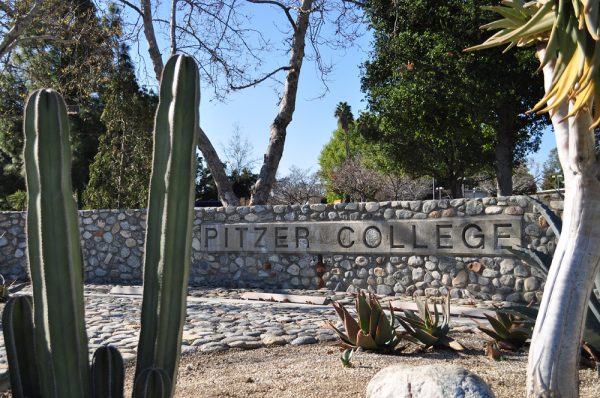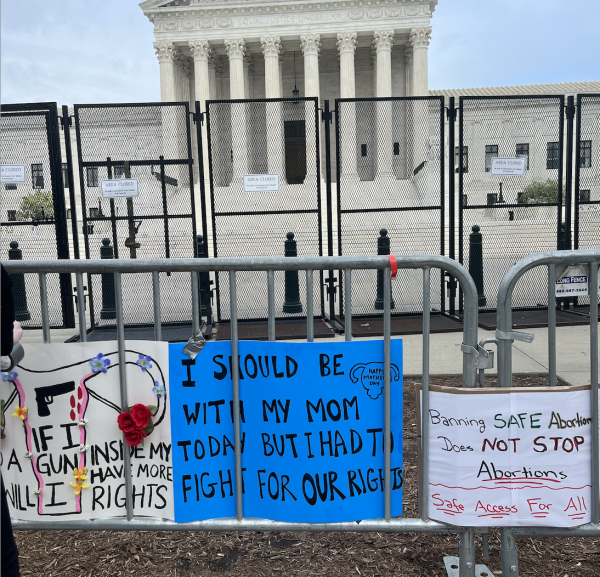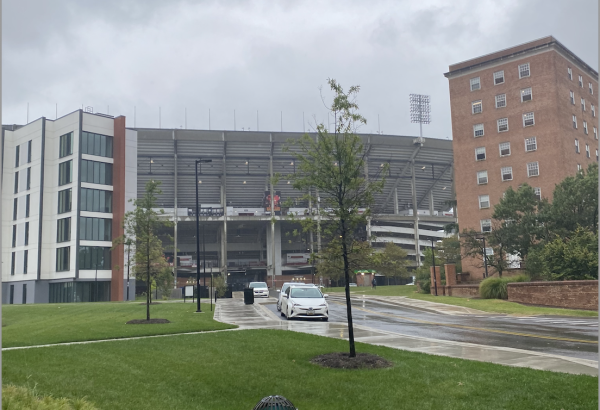Presumption of innocence must be upheld in Kavanaugh hearing
photo courtesy of Jacob Mannes
Students gathered throughout the day yesterday to watch and listen to the senate hearing.
September 28, 2018
Montgomery County teenagers should care about sexual assault, but to direct anger at Supreme Court nominee Brett Kavanaugh is misguided.
I should begin by saying that I believe Christine Blasey Ford’s testimony before the Senate Judiciary Committee was honest. There is no doubt in my mind that Ford was sexually assaulted as a high school student. This is deeply troubling to me.
If Kavanaugh did, in fact, assault Ford, he should be disqualified and disbarred, especially since he so vehemently denied the allegation. Now that he has testified under oath, he also faces the possibility of having committed perjury.
The fact remains, though, that no evidence has been presented to corroborate that Kavanaugh was the attacker. All three of the additional attendees that Ford named, including her lifelong friend Leland Keyser, deny not only that the assault happened, but also that they were present at the described gathering. Additionally, Keyser denies ever meeting Kavanaugh.
Ford insists that she is not mistaking her attacker’s identity, but The Innocence Project, an organization devoted to helping people who have been falsely convicted, says that a majority of wrongful convictions are due to mistaken identifications. According to their website, “mistaken eyewitness identifications contributed to approximately 70% of the more than 350 wrongful convictions in the United States overturned by post-conviction DNA evidence.”
Memory can be faulty, especially after more than three decades and when the alleged incident occurred under the influence of alcohol.
Ultimately, there is no way of knowing what happened 36 years ago. There are no contemporaneous accounts that can corroborate Ford’s, and on the other side, Kavanaugh’s presented evidence, namely calendars from 1982, is weak.
At the end of the day, this is America, and there must be a presumption of innocence. Kavanaugh should not be convicted of a crime, even in the court of public opinion, for which there is insufficient evidence.
Montgomery County students should care about sexual assault. I should not have to state that it is serious crime with lasting effects on the victim. I deeply sympathize with Ford, both for the trauma she endured as a teenager and the vitriol directed at her now.
There is simply no reason, however, to speak out against Kavanaugh when our zip codes give us no further insight into what happened than what has been presented to the Senate Judiciary Committee.
If local teenagers are following the Supreme Court hearings, it is far more appropriate to have conversations about how teenage alcohol use and the culture surrounding it negatively impacts our interactions.
If the alleged gathering occurred, all the people implicated were drinking underage. Kavanaugh and his friends’ drinking habits reflect poorly on their credibility. The fact that Ford was drinking also calls into question her ability to properly remember the event. The common thread is that their decision to drink was irresponsible and is now adversely impacting their lives 36 years later. It is especially important since we are now in the age of social media where everything is permanent that these teens’ poor choices serve as a harsh lesson to modern high school students.



















Ari Gershon '86 • Sep 30, 2018 at 8:28 am
I want to share my happiness at seeing two very different takes on the Kavanaugh nomination in the Lion’s Tale. I grew up as part of a political minority at JDS during the Reagan years. I often disagreed strongly with my classmates and teachers, but there was always room for civil dissent and well-reasoned debate. (I am especially grateful to my teacher Carol Powers for this!) From what I am told, as I now live in Israel, America is now even more politically polarized than it was then. So I was very happy to see signs that the traditions of intellectual diversity and debate are alive and well at JDS. Kudos to the Lion’s Tale for publishing both Sara Sporkin’s and Amelia Davidson’s opinion pieces!